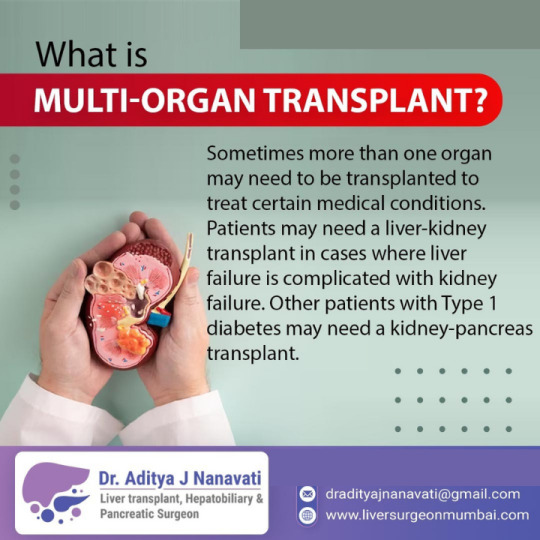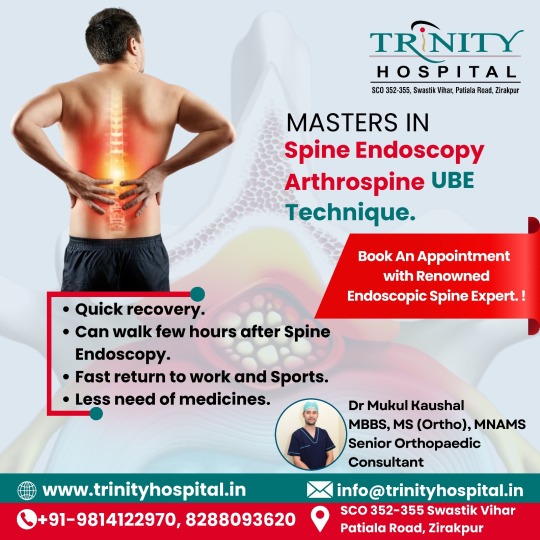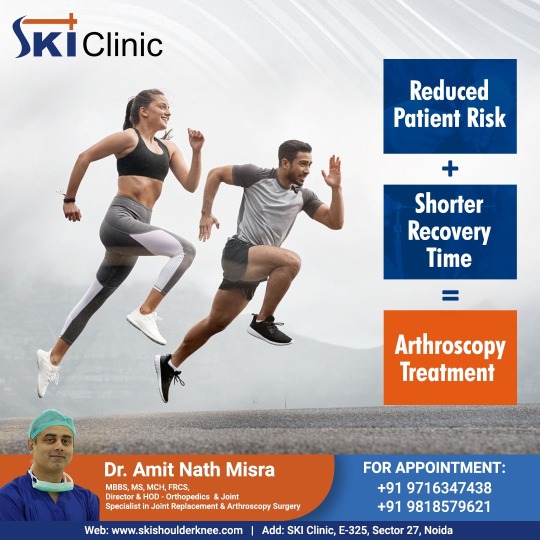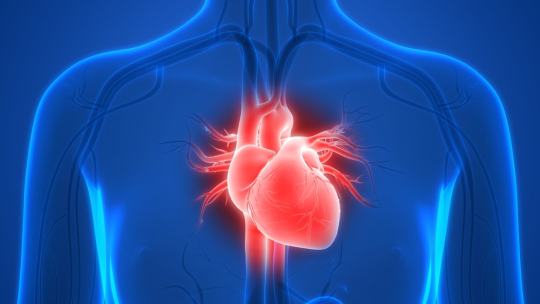#HealthcareAdvancement
Text

anshospital.in
Today, we celebrate the remarkable discoveries of DNA and the profound impact it has on our understanding of life and health. 🧬💡 National DNA Day serves as a reminder of the groundbreaking research and technological advancements that continue to shape medicine and genetics. 🌐🔬 At ANS Hospital, we recognize the importance of genetic testing and personalized medicine in improving patient care and outcomes. 💙✨ On this day, let's honor the pioneers of DNA science and commit to furthering our knowledge and capabilities in genomic medicine. Together, we can unlock the mysteries of our DNA and pave the way for a healthier future.
#anshospitalpatna#nationaldnaday#geneticdiscovery#anshealthcare#medicalinnovation#globalhealth#healthandgenetics#healthcareadvancement
0 notes
Text
youtube
Considering cervical spine surgery? Dr. Pranjal, a famous neurosurgeon in India, shared some points - YouTube
#SpineSurgery#CervicalHealth#AdvancedTechnology#MedicalInnovation#SurgicalPrecision#Microsurgery#HealthcareAdvancement#RecoveryJourney#PainManagement#SafeTreatment#Youtube
0 notes
Text
Discover the transformative journey of medication transfer devices in our latest article: 'The Evolution of Medication Transfer Devices: A Comprehensive Guide.' Explore the history, advancements, and future trends shaping this critical aspect of healthcare. Dive deep into the innovations revolutionizing patient care and medication management. Read more on our website and stay informed on the forefront of medical technology!
#MedicationTransferDevices#HealthcareInnovation#MedicalTechnology#MedicationManagement#HealthcareAdvancements#EvolutionOfMedicine#ComprehensiveGuide
0 notes
Text
#RoboticSurgery#MedicalInnovation#SurgicalTechnology#HealthcareAdvancements#MinimallyInvasiveSurgery
0 notes
Text
Gynecologist In Thane
Abdominal Pains?
Opt for Laparoscopic Surgery In Thane!
Suffering from Abdominal Pains?
Opt for Laparoscopic Surgery for a Swift Recovery!
Experience minimal pain, faster healing, and no visible scars.
It's the cost-effective solution for your well-being. Say goodbye to discomfort and hello to a pain-free life!
For more information : https://posts.gle/H7WhgB
0 notes
Text
0 notes
Text

Explore the intricate process and life-saving marvel of multi-organ transplantation. This medical procedure involves the transplantation of multiple organs, often crucial for patients facing complex health challenges. Witness the incredible teamwork, advanced surgical techniques, and the hope that multi-organ transplants bring to individuals in need. From heart and liver to kidney and more, delve into the science and stories behind these extraordinary medical interventions.
#MultiOrganTransplant#OrganTransplantation#MedicalMiracle#SurgicalInnovation#HealthcareAdvancements#LifeSavingProcedure#OrganDonation#TransplantJourney#MedicalMarvel#HopeForLife#SurgerySuccess#TeamworkInMedicine#PatientStories#MedicalScience#OrganTransplantAwareness#SurgicalExcellence#DonateLife#MedicalBreakthrough#HealthcareHeroes#ScienceAndMedicine
0 notes
Text

Uncover the future of spinal care with our cutting-edge Spine Endoscopy and Spine UBE (Ultrasonic Bone Removal) technique at Trinity Hospital & Medical Research Institute! 🌟 Experience minimally invasive procedures that prioritize precision and patient comfort. Discover a world where advanced technology meets compassionate care. Contact us to learn more or schedule your consultation:
📞 +91-8288093620
📧 [email protected]
🌐 https://trinityhospital.in/
📍 SCO 352-355, Swastik Vihar, Patiala Road, Zirakpur
#TrinityHospital#SpinalCare#Endoscopy#UBEtechnique#InnovativeMedicine#PatientFirst#HealthcareAdvancements#PrecisionCare#MedicalResearch#ZirakpurHealthcare
0 notes
Text

Reduced Patient Risk + Shorter Recovery Time = Arthroscopy Treatment
Visit Us: https://skishoulderknee.com/total-hip-replacement.php
Our Social Media
Facebook: https://www.facebook.com/dramitnathortho
Twitter: https://twitter.com/DrAmitNath
Linkedin: https://www.linkedin.com/in/dr-amit-nath-misra-b601a4241/
#jointreplacement#Totalhipreplacement#jointhealth#dramitnathmisra#hipreplacement#HipReplacement#Arthroscopy#ReducedPatientRisk#ShorterRecoveryTime#MinimallyInvasive#OrthopedicProcedure#JointHealth#OrthopedicSurgery#FasterRecovery#PainRelief#SurgicalInnovation#ArthroscopicSurgery#OrthoCare#JointRecovery#HealthcareAdvancements#SurgeryBenefits#OrthopedicAdvances#RapidRecovery#OrthoTreatment#ArthroCare
0 notes
Text
#BusinessInvestment#AstraZeneca#Cellectis#Therapeutics#HealthcareAdvancements#PharmaceuticalIndustry
0 notes
Text

🔰SSOC WELCOMES you, to the 6th International Meet the Masters course live from the UK!
🔆ARTIFICIAL INTELLIGENCE IN HEALTH CARE & ORTHOPAEDICS!
🔆 DATE & TIME : THURSDAY , 26TH OCTOBER 2023 - 6:30PM IST
🔆Click here to Register : https://tinyurl.com/OrthoTV-SSOC-1
WITNESS TURNING POINT IN THE HUMAN HISTORY!
LEARN ABOUT, JAW DROPPING ADVANCES IN HEALTH CARE & ORTHOPAEDICSI-THE ADVENT OF AI! AND ROLE OF ARTIFICIAL INTELLIGENCE IN RADIOLOGY
🔆Dr. Harun Gupta - Consultant Radiologist, Clinical supervisor, Leeds training Academy & Honorary senior Lecturer, Leeds University, United Kingdom
🔆Dr. Srikanth K N - Robotics & Reconstructive Specialist, Proprietor & MD, SSOC, Bangalore, India
📺Media Partner : OrthoTV Global
🤝OrthoTV Team: Dr Ashok Shyam, Dr Neeraj Bijlani
▶️ Join OrthoTV - https://linktr.ee/OrthoTV
#SSOC#OrthoTV#AIinHealthcare#Orthopaedics#MedicalConference#ArtificialIntelligence#HealthcareAdvancements#Radiology#MedicalEducation#MeetTheMasters#OrthoTVGlobal#AIinMedicine#HealthTech#MedicalInnovations#MedicalLearning#HealthcareEvent#OrthopaedicSurgery#AIinRadiology#OrthoTVTeam#HealthcareProfessionals#MedicalTraining
0 notes
Text
Discover the groundbreaking advancements in chemotherapy safety with our latest article, 'Revolutionizing Safety in Chemotherapy: The Closed System Transfer Device by Simplivia.' Dive into the innovative technology that is reshaping the landscape of chemotherapy administration, safeguarding both patients and healthcare professionals. Explore how Simplivia's Closed System Transfer Device ensures airtight protection against hazardous drug exposure, minimizing risks and maximizing peace of mind. Join us as we unveil the future of chemotherapy safety and efficiency. Read the full article now and witness the transformation in patient care with Simplivia.
#ChemotherapySafety#ClosedSystemTransfer#SimpliviaInnovation#HealthcareAdvancements#PatientSafetyFirst
0 notes
Text
Importance of 3D Models in Healthcare - Shalin Designs
Explore how 3D models are transforming healthcare. Discover the advantages of incorporating 3D modeling into medical practice and research.
#HealthcareInnovation#3DModeling#MedicalTechnology#HealthcareAdvancements#3DPrinting#MedicalResearch#PatientCare#MedicalVisualization#InnovationsInHealthcare#HealthTech#3DHealthcareModels
0 notes
Text
Surgical Innovations in Prostate Cancer Management
#ProstateSurgery#MenHealthMatters#ProstateHealth#SurgicalTreatment#ProstateCancerAwareness#HealthcareAdvancements#MinimallyInvasiveSurgery
0 notes
Text
Cardiac Transplantation in the Adult Congenital Heart Disease Population

The adult congenital heart disease population continues to grow thanks to the success of their management in the paediatric age. This manuscript will briefly review the special characteristic of this patient population when they progress into end stage disease and require treatment in the form of heart transplantation.
Heart transplantation has become an effective therapy for patients with end stage heart failure. The success rate has now been translated to a median survival of close to eleven years. Considering patients with end stage heart failure have a mortality that is close to 100 per cent at one year, this is a fabulous achievement from science and medicine. It must also be noted that heart transplantation has had reasonable stable volumes for many years with less procedures than needed. It has only had a steady slight increase from 1993 to 2004 reaching an all-time high in 2015 with just over five thousand operations done worldwide. Not only does the heart failure population continue to grow overall, making heart transplant an even more precious resource, but there is also a patient population that has increased at an even higher proportion. This population is that of the patients with adult congenital heart disease who currently only represent approximately 3 per cent of the heart transplant operations done. Nevertheless, while that 3 per cent seems small, it represents a 40 per cent increase compared to the previous decade. This population is therefore likely to need wider representation in the near future.
Congenital heart disease is the most common cause of birth defects. The fact that this patient population is increasing is testament to the success of the surgical and medical management of the paediatric population. In the not too distant past, the more complex patients within this group of disorders used to end their lives in childhood. Thanks to breakthrough science, technology and medical improvements, the expected survival of these patients has improved dramatically. This has led to formal adult congenital heart disease programs that now care for these patients as they grow older.
As these patients grow older, they continue to require intense care. While it is true that the simpler and more common lesions such as an atrial septal defect rarely progress to end stage heart failure, the more complex cases such as those with tetralogy of Fallot, systemic right ventricle or the myriad of conditions that end up in single ventricle physiology do tend to continue to decline. Very notably, the main causes of death of the complex congenital heart disease population are by far due to cardiac reasons. Furthermore, within those potential cardiac causes of death which can include sudden cardiac death, ischemic heart disease or peri-procedural complications, the main cause is not the aforementioned but, indeed, end stage heart failure. If one keeps in mind that continued decline and refractory class IV symptoms are an indication for advanced therapies, such as cardiac transplantation, one can only expect that the number of patients with adult congenital heart disease that need a transplant will continue to increase. It must also be pointed out that this patient population is often ineligible to receive other forms of advanced therapies such as durable ventricular assist devices also known as mechanical circulatory support due to their specific anatomy and physiology. The latter comment means that, often heart transplantation is the only option despite the fact that some progress has been made with mechanical support and experience is being accumulated but so far the published data shows that there have been less than 200 durable mechanical devices in patients with congenital heart disease.

One of the most important reasons that the population in question merits its own chapter within the advanced heart failure subspecialty is that these patients carry more and very specific challenges. Some of these challenges are due to the fact that these patients have a higher incidence of entities such as chronic cyanosis (low oxygen levels in blood), multiple previous operations which means the tissue is harder to access and there is higher risk of bleeding; higher likelihood of kidney or liver impairment, higher incidence of pulmonary hypertension and the possibility of being sensitised immunologically. All these factors, alone or in combination mean that this kind of transplants are, in essence, higher risk transplants. Consequently, the mortality at thirty days and one year is significantly higher. Very notably, possibly due to the fact that this patient population tends to be younger than the overall cohort of adult heart transplants and that many of the challenges can slowly be overcome in the long-term after transplant, the mortality trend tends to be very similar at five years and, in fact, a higher proportion of patients with a history of congenital heart disease are alive compared to the rest of heart transplants. In other words, there is a higher up front risk but the long-term outcomes are better.
One subset of patients that warrants special attention is that of some of the most complex ones. These are the patients with single ventricle physiology or also commonly known as those who have had a Fontan procedure. What this means is that there is passive flow from the venous return into the pulmonary circulation without a ‘pump’ or right/subpulmonic ventricle. Blood passively flows through the pulmonary bed and returns to the single ventricle in order to be actively circulated systemically. While this is a life saving procedure, without which these patients would almost certainly die early in childhood, it has a large number of potential long-term complications, some of which add to the challenges seen at the time of requiring a heart transplant as the only choice to prolong life. Not only are there exclusive entities associated to the Fontan procedure which are protein losing enteropathy and Fontan-associated liver disease; but there is also an even higher incidence of arrhythmias, pulmonary hypertension, coagulopathy, congestion and allosensitisation. In addition, these patients have a tendency to develop collateral blood flow that is understood as a mechanism to compensate for the lack of a ‘right sided pump’. The problem with these collateral vessels is that they can represent a higher, and sometimes prohibitively risk of bleeding for thoracic surgery. Another point that is important to underline is that the chronic congestion can lead to liver failure requiring also a liver transplant in order to survive. Evidently, this further increases complexity. It has nevertheless been demonstrated that with adequate patient selection and management by a multidisciplinary team in a high volume centre, it is possible to have a successful dual heart and liver transplant programme for the failing Fontan patient.
It is not all bad news and challenging scenarios for the adult congenital heart disease population. In addition to the better long-term outcomes detailed above, some of the most complex patients that require a liver transplant can count with an immunologic advantage from the donated liver. In other words, in those patients whose immune system is sensitised against potential foreign tissue, the liver provides protection. These patients have lower incidence of rejection and when done carefully, can even afford some degree of incompatibility between the recipient and the donor. This effect is so prominent that the use of liver tissue has even been suggested as a strategy to successfully transplant sensitised patients.
In conclusion, heart transplantation is a formidable therapy for the adequate patient with all different sorts of end stage heart disease. One of this sort of diseases is that of the adult with congenital heart disease which is a patient population that continues to grow thanks to the paediatric successes. This is a special group of patients due to particular challenges that make their transplants higher risk. This risk is translated as higher short term mortality but overall better long-term outcomes. Further scientific and medical advancement is needed to further serve this growing population.
Read More: https://www.europeanhhm.com/medical-sciences/cardiac-transplantation-in-the-adult-congenital-heart-disease-population
#healthcare#heartbreak#CardiacTransplantation#MedicalScience#HealthcareAdvancements#HeartHealthMatters#CardiacRecovery#TransplantSurvivor
0 notes
Text
The Power of Stem Cells| Q/A |DR. JAMAL A. KHAN

Unlock the potential of stem cells in a dynamic Q&A session featuring Dr. Jamal A. Khan. Stem cells are a remarkable source of healing and regeneration, holding promise for treating a wide range of medical conditions. Join us as Dr. Jamal A. Khan, a leading expert in the field, shares insights into the latest advancements, breakthroughs, and real-world applications of stem cell research. Discover how stem cells are revolutionizing healthcare and addressing various health challenges. From regenerative therapies to personalized medicine, this session will provide a platform to delve into the power of stem cells and their transformative impact on modern medicine. Don't miss this opportunity to engage with a pioneering authority and gain a deeper understanding of this cutting-edge field.
#StemCellPower#QandA#MedicalInnovation#RegenerativeTherapies#HealthcareAdvancements#ExpertInsights#StemCellResearch#HealthRevolution#PersonalizedMedicine#HealingPotential#DrJamalAKhan
0 notes